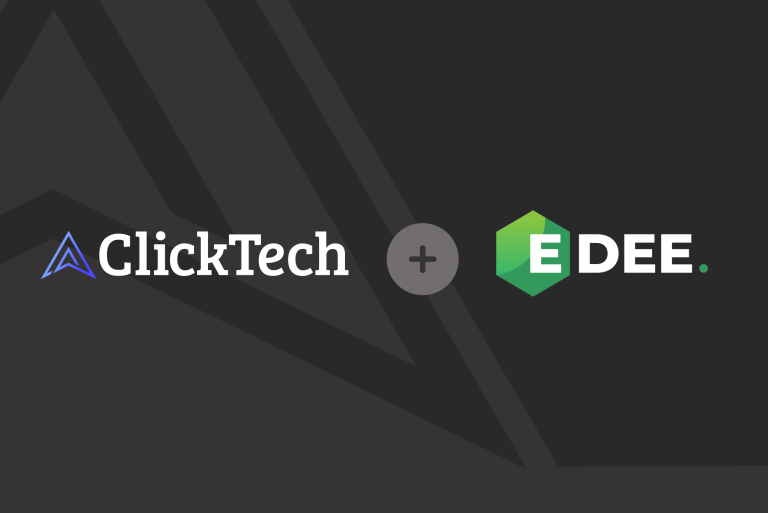With an extremely eventful 2020 coming to a close, a fresh start in the new year is definitely welcome. Every industry has taken a hit during the pandemic, which means it’s in every business’s interest to generate more leads throughout 2021.
But how does one go about achieving this? It’s a good question, and one that we’re going to answer in this helpful guide to attracting and nurturing as many leads as possible in the new year.
1. Integrate SEO into your site marketing
A study in 2019 by the Small Business Administration (SBA) revealed that as much as 36% of small businesses did not have a website. That statistic alone is crazy when you consider the importance of your web presence in the digital age.
Just think, whenever you consider paying for a service or buying a product, the first thing you do is check out the company’s website to establish if it’s a worthy investment.
But you don’t have that problem; you’re a business owner who recognises the value of a website, right?
So, the next step is to ensure that the site is working hard to secure the sale, generating as high a conversion rate as possible — which of course is where SEO comes into play.
SEO stands for ‘Search Engine Optimisation’. It’s an essential aspect of modern marketing and consists of a variety of methods used to increase your visibility and ranking on search engine results pages (SERP).
For these reasons, it’s become one of the most sought after online marketing services for modern businesses. By optimising your website for SEO, when your potential customers search for queries relating to your industry online, your website will appear quicker (hopefully on the first page) and offer them the solution they need.
By making it easier to stumble upon your website, you not only increase your visibility online, but also secure more opportunities to generate leads. To find out more about optimising your website, check out this helpful guide by Moz.
Another way to integrate SEO into your business is by using Adzooma’s SEO Performance Report. The report will analyse your website and identify immediate actions you can take to improve.
The SEO Performance report will give you the tools to:
- Get ahead of your competitors by finding keywords they’re missing
- Increase conversions by improving on-site user experience
- Compliment your campaigns with more organic traffic
The report is available to all Adzooma users, try the basic version for free to get a taste of what this report can offer. Not an Adzooma user? Sign up for free, here.
2. Use marketing automation
We live in an era where, thanks to the advances in technology, automation is becoming more prominent in a vast range of industries — and marketing is no different.
Today, businesses benefit massively from automated lead generation software. With this software, when a potential customer interacts with your company (such as signing up to a newsletter or requesting a quote), it triggers an automated process, which provides you with the means to nurture leads with targeted marketing resources — but we’ll get to that later.
Automated lead generation is among the most effective online marketing services, as it offers a more streamlined yet highly-effective lead generation tool. Below, we’ll highlight a few of the most useful marketing automation tools.
Email automation
Email marketing automation allows you to maintain contact with potential customers, which helps to keep them engaged and more likely to purchase from you. It also lessens the risk of a competitor making the sale before you do.
Writing and sending multiple emails takes a lot of time as it is; even more so when they need to customised for each prospect. Thankfully, with automated email marketing software, you’ll have more free time to focus on other crucial areas of your business while generating leads at the same time — it’s a win-win. Here are some email marketing tools that you can use:
With an automated email marketing campaign in place, you can distribute pieces of content that inform, engage and drive your potential customers down the sales funnel (otherwise known as ‘lead magnets’). But, we’re getting ahead of ourselves here; we’ll discuss email nurturing a little later!
Facebook automated marketing
Facebook is nothing short of a social media phenomenon, and also happens to be one of the most efficient methods of marketing your business. The platform provides marketers with an abundance of information about prospects, such as their location, gender and interests, as well as specific Facebook groups they’re part of, making it the perfect platform for automated marketing.
If you are looking for a way to increase the output and reach of your marketing campaign, automation with Facebook is a brilliant way to increase engagement as well as brand awareness.
When marketing with Facebook, it’s crucial to create ads that inform and engage customers while avoiding content that may disrupt their feed.
It’s easy for a customer to be put off by ads that feel intrusive or out of place on their timelines, which is why the initial steps of automated marketing, such as creating personas, will give you a more precise understanding of your audience and their needs.
Social media is arguably the most powerful marketing tool available, which makes automated online marketing services so essential to ensure success for modern companies.
LinkedIn automated marketing
LinkedIn is a social media platform for professionals in every industry, and it’s also another resource that can be turned into a lead generation tool with the help of automated marketing software. Creating targeted lead generation ads based on LinkedIn activity, profile information, and interactions is a brilliant way to capitalise on such a broad audience.
From a sales prospecting point of view, you could also use LinkedIn automation to extract your contacts data and export the leads to a CRM.
If you want to set up your own LinkedIn lead generation campaign, Hubspot has put together a brilliant guide to help!
3. Nurture your email list
Email nurturing is a marketing strategy that utilises personalised content as a way to connect and develop stronger relationships with potential customers, and eventually convert leads into sales.
The key to a successful email nurturing campaign is getting to know your audience, which is why it’s vital to craft personas that represent your ideal or most common customers. With these personas in mind, you’ll have a blueprint for the style and tone of content best suited to your potential leads.
From here, you can begin to create emails that are tailored to the needs of each persona and distribute them. As an example, let’s use a four-week quote-to-sale email nurturing process:
- Email 1: Your first email will be the response to initial customer interaction. In this case, let’s say it’s a customer who has requested a quote. This first message will be a brief, yet conversational email that highlights the benefits of the service, provides the quote and explains the next step towards purchase.
- Email 2: One week later, your potential customer will receive an informative piece of content which offers a more in-depth insight into why they need your product/service and how it will improve their business/life. The goal here is to inform, and avoid being too pushy with your sales tactic. By educating the reader about the benefits of making the purchase, you’re not telling them to buy — they decide for themselves.
- Email 3: The next email you send has to offer something of value and genuinely entice the reader to engage. This is where your personas will prove to be vital. For example, if your audience is small business owners, how can you help them? Will your service allow them to grow their business? Will it provide them with free time to focus on other aspects of their company? Identifying the goals and aspirations of your audience will ensure that your targeted content hits the mark.
- Email 4: This is where you revisit the quote in a brief message that reminds them that they were interested enough to request a quote, but are yet to follow up. This, combined with the previous informative and engaging emails, will offer food for thought and serve as a reminder of why they need your product/service in their life. If you want to increase your chances of making the sale, you could even include a small percentage discount code. Everyone loves a bargain!
Every email nurturing campaign is different, and will vary in regards to the timeframe, style of content and also the general approach you need to adopt. The example above is a shorter email nurturing process, as it’s vital to strike while the iron is hot.
The customer has requested a quote, and there’s a small window of opportunity to ensure that it’s you, and not a competitor, that they commit to. Therefore, it’s critical for you to identify the best approach for your particular needs and the needs of your customers.
If you have an in-house marketing team who can craft a targeted email nurturing campaign for you, fantastic! If not, you may want to seek guidance from a professional digital marketing agency that specialises in this area, and has experience working closely with businesses across many different industries.
Let The Brains take care of your lead gen!
The Brains helps its clients generate high quality leads using online advertising, marketing automation and creative content. Having worked with ambitious businesses such as DHL, McDonald’s, and Corgi and been featured on the BBC, The Brains has what it takes to turn leads into conversions for your business.




